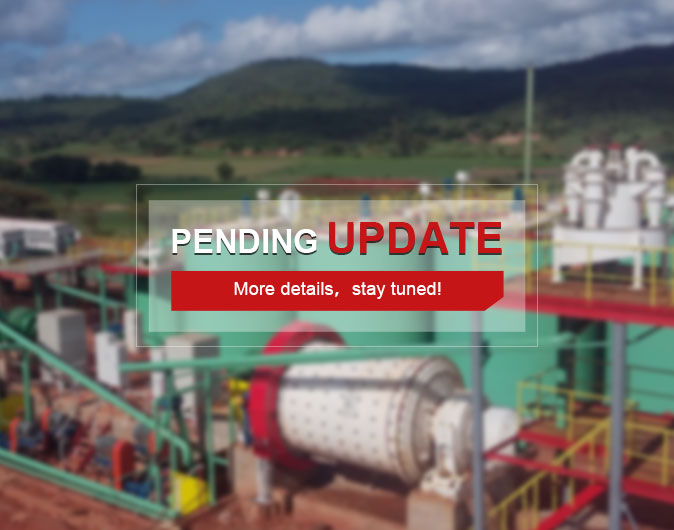cases



Inner Mongolia Siziwangqi 660 tpd fluorite mineral processing plant is a mining industry chain service (EPCM+O) project undertaken by Xinhai, which is solely undertaken by Xinhai from design and research, manufacturing and procurement of complete sets of equipment, commissioning and delivery to mine management and operation.
The stage of crushing and screening: Used the process of two-stage and one closed-circuit crushing and screening. The raw ore was stored in the raw ore yard and loaded with a forklift truck. An electric vibrating feeder was installed at the bottom of the primarybin and the jaw crusher was used for coarse crushing. After coarse crushing, the material was transported to the circular vibrating screen by 1# belt conveyor, and the material on the screen was transported to the cone crusher for fine crushing by 2# belt conveyor. The finely crushed products and the coarsely crushed products were The products of fine crushing and coarse crushing are returned to the vibrating screen to form a closed-circuit crushing. The materials under the screen were qualified materials in the crushing stage and were transported to the powder ore bin by the 3# belt conveyor.
The stage of grinding and grading: Used the process of the first full closed-circuit grinding(first grinding+second grading) + desulfurization flotation+Fluorite flotation (one-roughing, two-scavenging, eight-concentration+concentration I re-grinding closed-circuit). A pendulum feeder was installed at the bottom of the powder ore bin and ores were transported to the overflow ball mill for coarsely crushing. The discharge of the ball mill flowed into the single spiral classifier for first grading and the overflowed was pumped into the hydrocyclone for second grading. The underflow of first and second grading was returned to the ball mill for re-grinding to form the process of first grinding+second grading full closed-circuit grinding.
The overflow from cyclone flowed into high-efficiency agitation tank with reagents and size mixing, then flowed into SF-8 flotation cell for desulfurization flotation. The flotation froth was sulfur concentrate. The pulp in flotation tank flowed into the lifting agitation tank and then was lifted into the high-efficiency agitation tank with reagents. After that, the pulp flowed into SF-8 flotation cell for ruoghing. The froth products of roughing flowed to SF-8 flotation cell for concentrating I. Then the products in the tank of concentrating I returned to roughing. Products in the roughing tank had twice scavenging in the SF-8 flotation cell. The froth products of first and second scavenging were returned to the previous operation in sequence. Tailings in second scavenging, as the final flotation tailings, were pumped to tailings pond.
The froth products of concentrating I flowed into the pump box and were pumped into the hydrocyclone for three-stage grading. The underflow flowed into overflow ball mill for re-grinding. The discharge flowed into the previous pump box for three-stage grading with the froth products of concentrating I, forming the re-grinding closed-circuit.
The overflow of three-stage grading flowed into SF-8 flotation cell for concentrating II of fluorite flotation. Products in concentrating II tank were pumped to the high-efficiency modified thickener for thickening and the overflow could be returned to the system for recycle as the backwater. The underflow was pumped to the high-efficiency agitation tank with reagents and size mixing, and then flowed into concentrating I.
The froth products of concentrating II entered SF-8 flotation cell for concentrating III~VIII, and products of concentrating III~VIII were returned to the previous operation in sequence. The froth product of concentrating VIII was the flotation fluorite concentrate.
The stage of concentrate dehydration: Flotation fluorite concentrate was dehydrated by the mechanical dehydration. Flotation fluorite concentrate was pumped to the high-efficiency modified thickener and the underflow was pumped to the ceramic-medium filter. The filter cake was transported to the drying workshop by 5# belt conveyor. Both the filtrate and the overflow from the thickener could be returned to the system as backwater for recycle.
To find out more about our products and solutions, please fill out the form below and one of our experts will get back to you shortly.